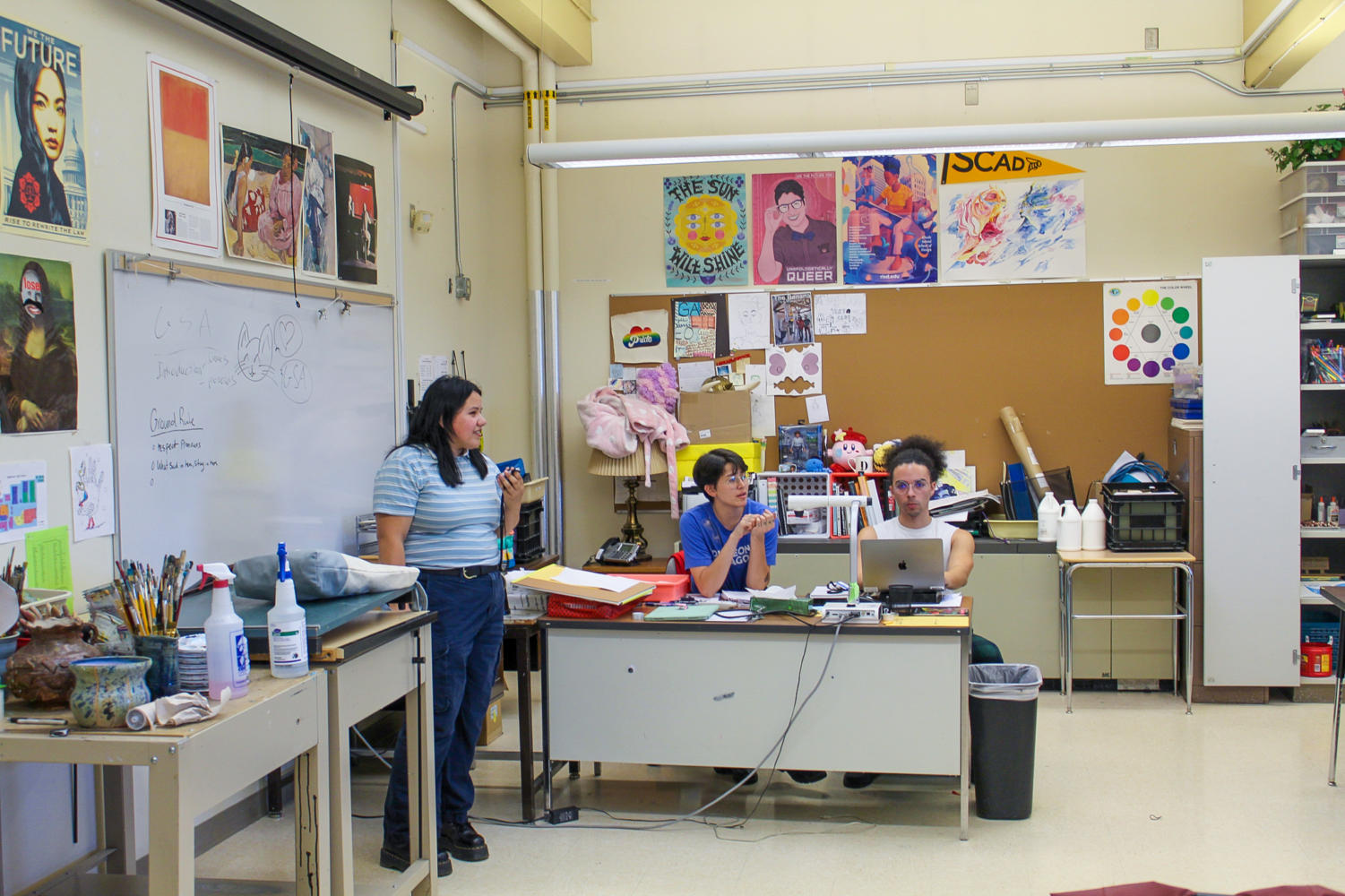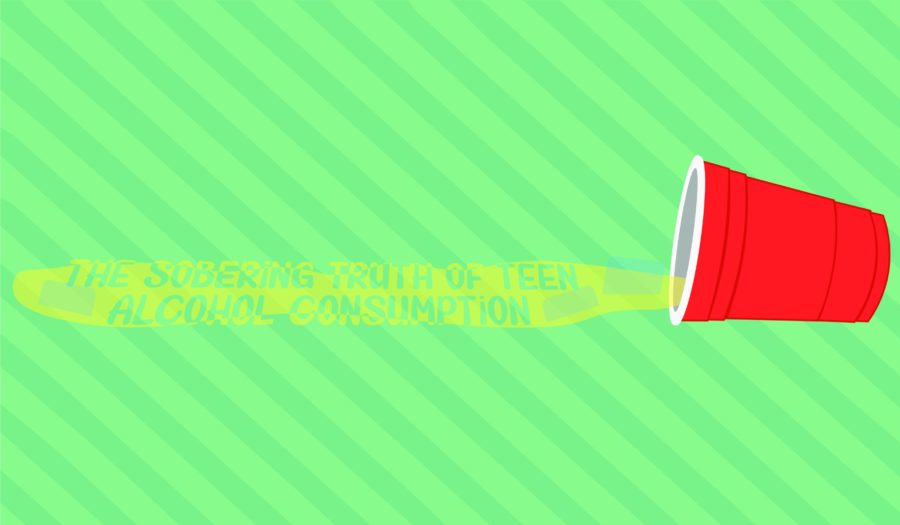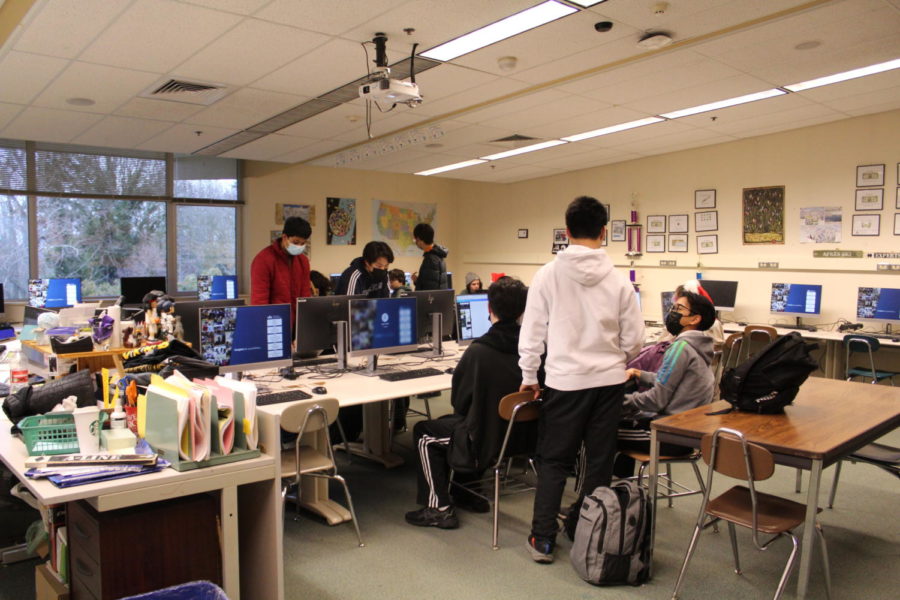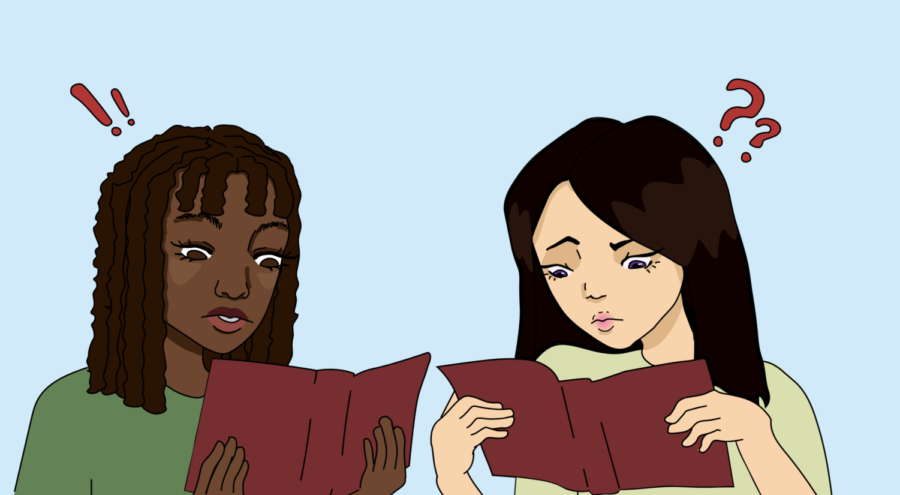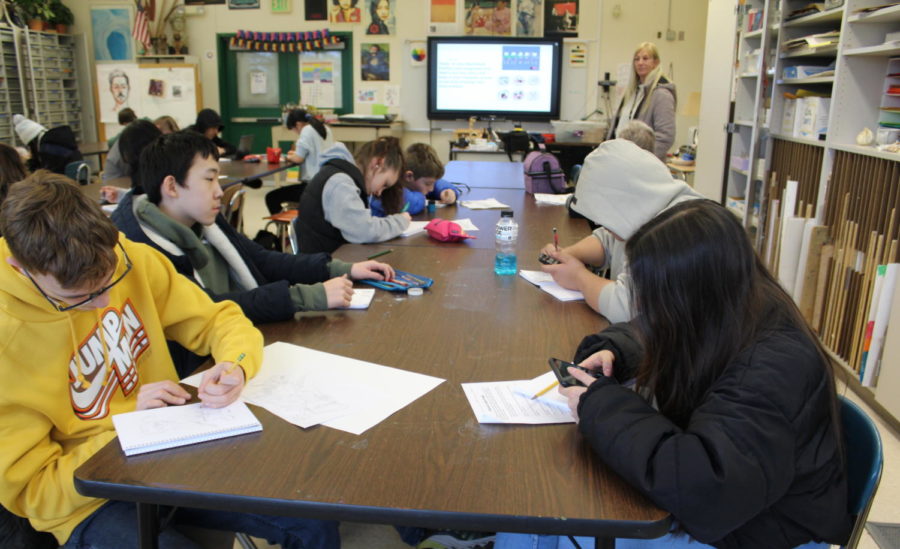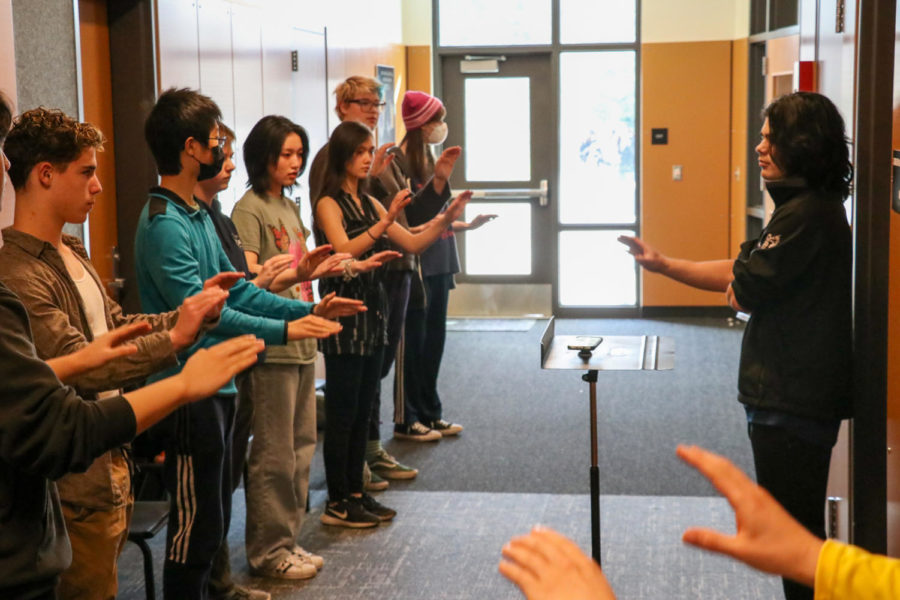Every Monday after school, GSA (Gender and Sexuality Alliance) meets in room 404 to create a safe space for LGBTQ students. Although it advertises itself as a “queer club,” GSA’s leaders emphasize that anyone who is supportive of queer rights is welcome, and that the club’s primary focus is to make sure students feel safe at school.
GSA is run by its cabinet, which consists of two co-presidents, a secretary and a treasurer. They are elected annually in June by club members. This year’s co-presidents, senior Isabel Amaya (she/they) and senior Amari Love (he/him), lead club meetings and act as discussion moderators. The secretary, sophomore Anna Polyanskiy (she/her), takes attendance, tallies votes and records leadership meetings. While a treasurer hasn’t been elected yet for this school year, the position entails managing the club’s finances and running GSA’s Instagram account.
“The leadership team is like a very dysfunctional family, but in a good way,” said Amaya. “Our secretary best describes us as a divorced couple, and I would say that’s pretty accurate. It’s very chaotic, but we get stuff done.”
Members’ identities are not disclosed publicly without their permission. Amaya said anonymity is very important to her and the other leaders of GSA because it ensures their members feel safe. While queer rights and queer safety are not big issues at Inglemoor, home life may be a different story, which is why she wants GSA to uphold its standard of anonymity.
“Regarding [anonymity in] the yearbooks, we’ve been very discreet about ‘Hey, if you don’t want to be in the yearbook because you don’t feel comfortable, that is completely fine,’” said Amaya. “We understand that there are certain privacy policies that students want, and we completely respect that.”
Love said anyone running a space for queer people should have anonymity in the back of their mind. The club’s second meeting this year was spent revisiting the club’s rules, and anonymity was at the forefront of the discussion.
“We’re definitely going to have to go over some ground rules in our upcoming meetings in terms of ‘four walls and a window,’ ‘everything that’s said here stays here’ outside of mandatory reporting stuff, but I think we harbor a group of really pleasant people, so that hasn’t been an issue so far,” said Love.
Polyanskiy agreed, saying that there generally have not been issues with people not respecting one another’s privacy.
“Normally, we just say at the beginning of the year — and whenever things get more personal — we explain our rule of ‘what happens in club stays in club,’ and we explain it to everyone, and people normally understand it pretty well,” Polyanskiy said. “We’ve never really had issues with people not understanding.”
Amaya says there is a low proportion of people of color in GSA, and she believes it’s due to a stigma of the LGBTQ community that exists within some minority groups. Amaya, who is Latino and identifies as genderqueer, said homophobia is accepted in Latino culture and that she was scared to explore her own identity for a long time because of that.
“I know there is nothing wrong with me, but even with all my heart I believe that statement, one tiny little voice will say otherwise and that’s all I can think about,” said Amaya over text on Discord. “I would say many LGBTQ and especially queer BIPOC [Black, Indigenous and People of Color], feel this way.”
Love, an officer in BSU (Black Student Union), another diversity club at Inglemoor, said he feels that it and GSA could work on collaborating with each other more, especially considering that BSU is a much smaller club than GSA.
“I feel like BSU is a much smaller club than GSA and has a much smaller outreach,” Love said. “And so I feel like us collaborating would be good on many aspects because we’d be collaborating with the queer and other minority spaces. And I feel like that would be just really cool. […] I remember we’ve had talks about doing something like that, but nothing’s actually happened.”
All three of GSA’s leaders — the two co-presidents and the secretary — said that communication and organization within the club’s leadership were key areas in need of improvement.
“We could still definitely improve in communication and being on point with what we do,” said Polyanksiy. “A lot of times, we’ll say that we’re different members of club leadership — we’ll say that we’ll get things done, and then life comes up and other schoolwork comes up, and GSA kind of has to fall to the bottom of the list of things to get done. So, we can definitely improve in our organization and our promptness.”
Polyanskiy added that GSA has not been a big part of Inglemoor in previous years, and that it was “difficult to get the ball rolling last year” coming back from COVID. The club is planning to engage in more activities this year to help more people know about GSA, such as a clothing drive for transgender people, a hot chocolate night and a Valentine’s Day event, among others.
Amaya said that a lot of the challenges GSA has historically faced came down to the leaders’ lack of prior experience with running club events and the club in general, citing last year’s talent show as an example.
“It was really just a lot of trial and error, and I think learning from that trial and error, we understand now that, ‘hey, we need to work on this now instead of that time,’” said Amaya. “Now that we have the experience doing events like that, we have a much clearer pathway for what we should do.”
Amaya said that there’s less pressure in GSA to show up and participate compared to other clubs, and that the club is just a space for students to not worry about school and find people with common interests and personality traits.
Sophomore Hazel Colver (xe/they/he) said that they had a lot of teachers who misgendered them a lot, but being in GSA helped reinforce their identity and helped them stand up for themselves.
“GSA has really helped me learn how to identify myself properly and state my boundaries with my pronouns without being disrespectful,” said Colver. “For example, I used to have a lot of trouble correcting people when they misgendered me, and now I have a lot of an easier time just quickly and easily correcting them.”
Polyanskiy said that being in GSA helped her think about and become more open with her own sexuality. While she used to be afraid to talk about her sexuality, being in GSA has made her feel much more comfortable to open up to people.
“Being able to talk with other people in the community is really helpful to help you open up,” said Polyanskiy. “I know people who have changed completely since joining GSA, and who have become so much more open both with their sexuality and their gender identity, and also just with being social. It really helps.”


